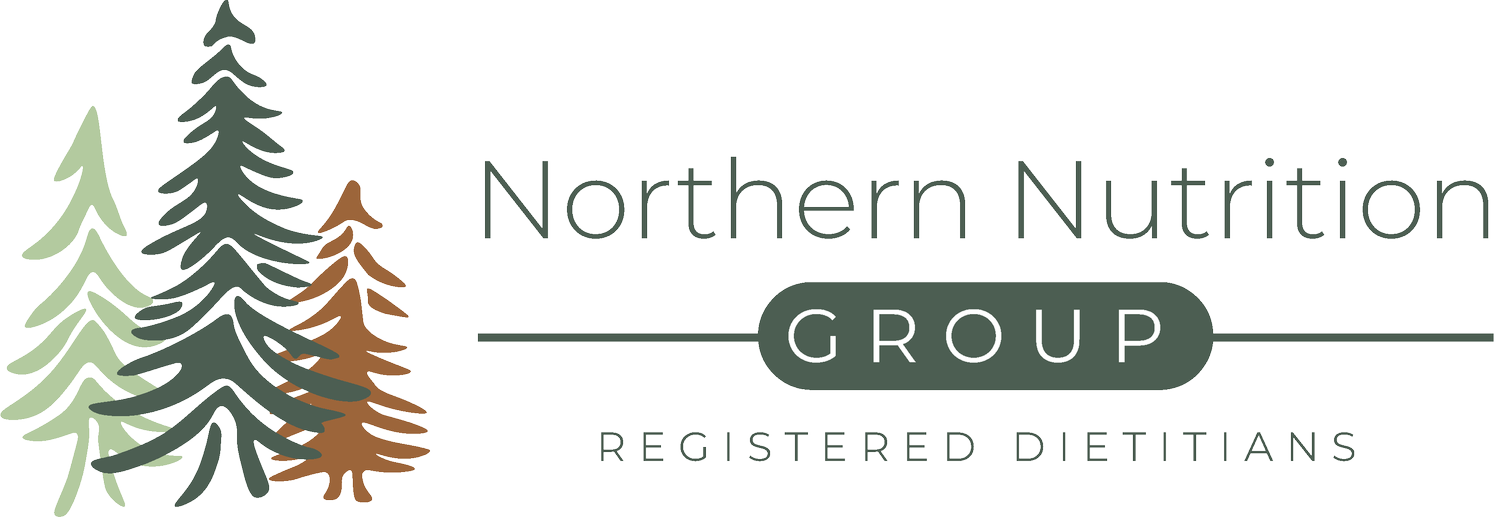Curating A More Positive Algorithm
It's a fact that many of us use social media platforms daily to connect with friends and family, stay 'up-to-date' on current happenings in the news, entertain ourselves, and learn more about current trends in health and wellness. In fact, half of U.S. adults report using Instagram, TikTok, LinkedIn, X, and YouTube (Social Media Fact Sheet 2024). While there are certainly positive aspects to using social media, there are also some harmful effects. One of these is the exposure to unrealistic and unhealthful societal body standards and food noise or talk that can lead to a negative relationship with food.
A systematic review, a comprehensive and unbiased summary of existing research, conducted in 2019 showed that exposure to body and food-related posts increased an individual's feeling of self-judgement and body dissatisfaction. Participants compared others' physical and lifestyle attributes to their own perceived strengths and inadequacies. This often left them feeling they did not measure up to the online ideals considered 'norms.' While food-related images can assist with meal preparation ideas, this study found that exposure to these images also increases young adults' food preoccupation or time spent thinking about food and food choices. Overall, engaging with social media and exposure to images related to the body or food may have a negative impact on one's self-body image and food choices in vulnerable populations (Rounsefell et al., 2019).
What can we, as active social media users, do to mitigate these risks now that we understand that viewing idealized images on social media can lead to negative behaviors and comparisons? The answer lies in curating a more positive algorithm on our social media feeds. By unfollowing accounts or interacting less with pages that promote harmful food behaviors or unrealistic body standards, and instead following more positive and evidence-based posts, we can reduce the risk of developing a toxic relationship with food. Here are some recommendations from Northern Nutrition Group to help you get started on curating a healthier algorithm for yourself.
@northernnutritiongroup - Northern Nutrition Group
@thenutritiontea - Shana Minei Spence, MS, RDN, CDN
@dr.amyporto - Amy Binkoski Porto, PhD, RD
@langernutrition - Abby Langer, RD
@evelyntribole - Evelyn Tribole, MS, RDN
@find.food.freedom - Sam Previte, RD
@iamivyfelicia - The Body Relationship Coach
@thehungryclementine - Nicole Groman, MS, RDN
@No.food.rules- Colleen Christensen, RD
@laura.iu - Laura Iu, Rd
@abbieattwoodwellness - Abbie Attwood, MS Nutrition
@haesdoctor - Jess Campbell, MD, Nutritionist
@haes_by_asdah - Association for Size Diversity and Health
@emilylavoie_eatingpsychology - Emily Lavoie, Eating Psychology Coach
@therappuccino - Bisma Anwar, LPC, LMHC Therapist
@diets_dont_work_haes1 - Debbie Lesko, advocate
@antidietfatty - Lauren, HAES & Fat liberation Coach
@thebodypostive - The Body Positive, non-profit
@fork.diet.culture - Abbey Roberts
@foodsciencebabe - Chemical Engineer/Food Science
Sources:
Rounsefell, K., Gibson, S., McLean, S., Blair, M., Molenaar, A., Brennan, L., Truby, H., & McCaffrey, T. A. (2019). Social media, body image and food choices in Healthy Young Adults: A mixed methods systematic review. Nutrition & Dietetics, 77(1), 19–40. https://doi.org/10.1111/1747-0080.12581
Pew Research Center. (2024, November 13). Social Media Fact sheet. Pew Research Center. https://www.pewresearch.org/internet/fact-sheet/social-media/
Written by Kaitlyn Schlangen, MS, RD
Kaitlyn specializes in: Eating disorders, disordered eating patterns, gastrointestinal (GI) disorders and diseases. She is dedicated to supporting individuals across all spectrums of these challenges.
